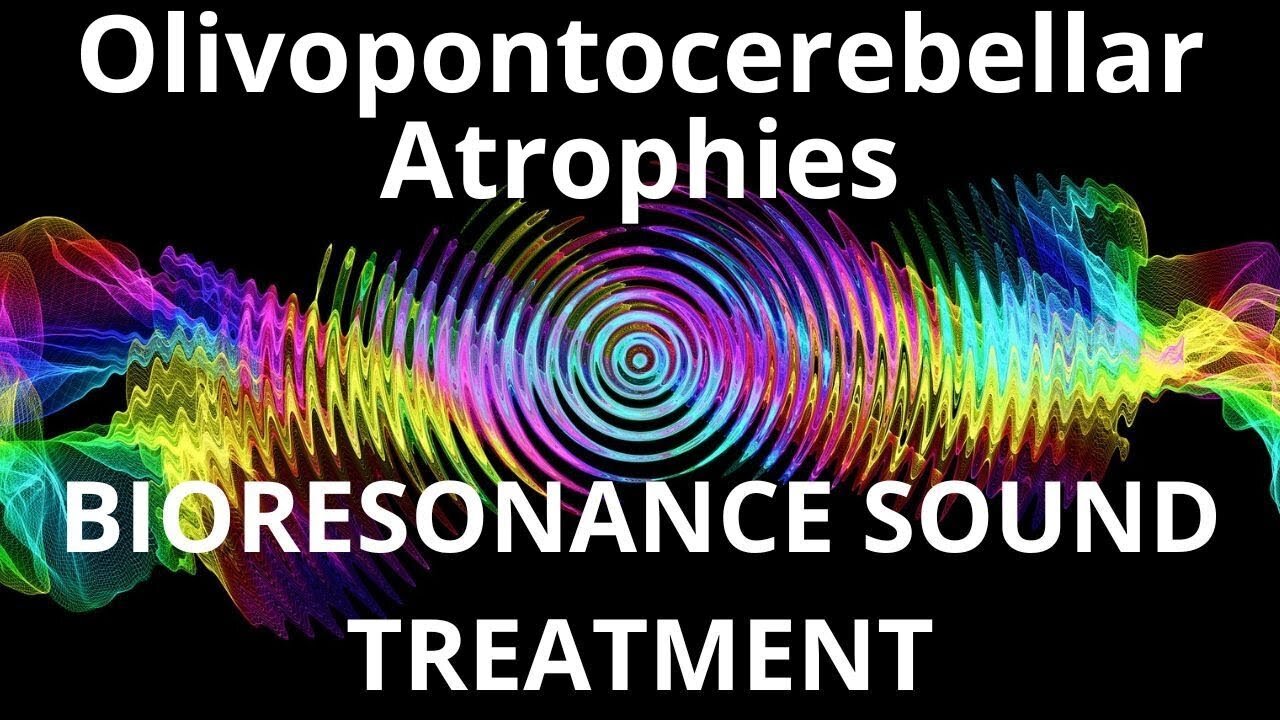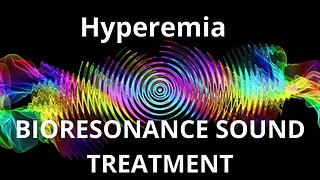Premium Only Content

Olivopontocerebellar Atrophies_Sound therapy session_Sounds of nature
Olivopontocerebellar Atrophies (OPCAs) are a group of rare neurodegenerative disorders that affect the cerebellum, pons, and inferior olivary nucleus of the brain. These conditions can lead to a range of debilitating symptoms, including balance and coordination problems, muscle stiffness, and speech difficulties. While conventional medicine plays a crucial role in managing OPCAs, an adjunctive treatment approach has emerged in recent years that shows promising results: resonant frequency sound therapy. In this article, we will explore the benefits of using this innovative therapy alongside conventional medicine for individuals with OPCAs.
Resonant frequency sound therapy, also known as sound healing or sound therapy, is a non-invasive treatment that utilizes specific sound frequencies to harmonize and balance the body and mind. It is based on the principle that every organ, tissue, and cell in the body has its own resonant frequency. By exposing the body to these specific frequencies, it is believed that imbalances and disharmonies can be corrected, promoting overall well-being and health.
How Resonant Frequency Sound Therapy Works for OPCAs:
1. Neuroplasticity: OPCAs are characterized by the progressive degeneration of brain cells. Resonant frequency sound therapy has been found to stimulate neuroplasticity, the brain's ability to reorganize and form new connections. By exposing the brain to specific frequencies, this therapy may help slow down the degenerative process and promote the growth of healthy neurons.
2. Stress Reduction: Living with OPCAs can be incredibly stressful for both patients and their caregivers. Resonant frequency sound therapy has been shown to reduce stress levels and induce a state of deep relaxation. This relaxation response can positively impact the autonomic nervous system, leading to reduced muscle tension, improved sleep patterns, and enhanced overall well-being.
3. Balance and Coordination: One of the hallmark symptoms of OPCAs is impaired balance and coordination. Resonant frequency sound therapy has demonstrated its ability to improve these motor functions by stimulating the cerebellum, the region of the brain responsible for coordination and balance. By exposing the brain to specific frequencies, this therapy may help reestablish neural pathways and enhance motor control.
4. Emotional Support: Dealing with a chronic neurodegenerative condition can take a toll on an individual's emotional well-being. Resonant frequency sound therapy has been found to have a positive impact on emotional health, promoting feelings of calmness, positivity, and overall emotional well-being. This can greatly benefit individuals with OPCAs, providing them with the emotional support needed to cope with the challenges of their condition.
Conclusion:
While conventional medicine remains the primary treatment for OPCAs, resonant frequency sound therapy offers a promising adjunctive approach that can enhance the overall well-being of individuals with these conditions. By stimulating neuroplasticity, reducing stress levels, improving balance and coordination, and providing emotional support, this therapy can significantly improve the quality of life for patients with OPCAs.
TO ACHIEVE A POSITIVE RESULT, DAILY LISTENING TO VIDEOS IS REQUIRED.
In my store you can purchase unique medicines:
https://store11998180.company.site/
You have the opportunity to support the channel:
https://destream.net/live/RadSiarAl/donate
-
 30:00
30:00
BIORESONANCE SOUND THERAPY
20 days agoHyperemia _ Sound therapy session _ Sounds of nature
68 -
 LIVE
LIVE
BubbaSZN
13 hours ago🔴 LIVE - MAFIATHON (COMPLETING THE MAFIA SERIES WITHOUT ENDING STREAM)
36 watching -
 2:50:02
2:50:02
TimcastIRL
4 hours agoTrump Calls Putin During Zelenskyy White House Visit, European Leaders Praise Trump | Timcast IRL
149K53 -
 1:54:34
1:54:34
FreshandFit
9 hours agoBrandon Carter Returns
30K3 -
 LIVE
LIVE
MissesMaam
9 hours agoResident Evil 4 *FIRST EVER PLAYTHROUGH*💚✨
293 watching -
 LIVE
LIVE
SlingerGames
2 hours agoSlinger Slays Elden Ring - Pt. 8 - Enduring the Pain
24 watching -
 LIVE
LIVE
VapinGamers
3 hours ago $0.07 earnedOff The Grid - Co-Stream with BSparksGaming! Come Join the Mayhem! - !rumbot !music
25 watching -
 1:36:53
1:36:53
Glenn Greenwald
6 hours agoTrump Tries to End War in Ukraine; U.S. is Dangerously Low on Weapons and Munitions Former Trump DoD Official Warns | SYSTEM UPDATE #502
85.7K40 -
 3:00:53
3:00:53
Barry Cunningham
5 hours agoPRESIDENT TRUMP HAS ENTERED THE END GAME AND DEMOCRATS ARE NOW IRRELEVANT!
54.2K62 -
 3:30:32
3:30:32
Jorba4
4 hours ago🔴Live-Jorba4- The Finals
22.6K1